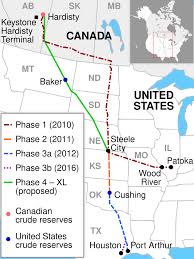
Introduction
The Keystone XL Pipeline has been a focal point of energy policy debates in North America for over a decade. This highly controversial project, intended to transport crude oil from Canada to the United States, has sparked discussions on energy security, economic growth, and environmental protection. With recent developments, understanding its current status and potential implications is critical for stakeholders and the general public.
Latest Developments
As of late 2023, the Keystone XL Pipeline has officially been canceled, following a long-standing opposition from environmental groups and changing political landscapes. The project, which aimed to extend the existing Keystone Pipeline system, faced significant hurdles, including legal challenges and regulatory setbacks. After President Biden revoked the project’s permit in January 2021, the pressure mounted on TC Energy, the company behind the project, which ultimately led to the announcement in June 2021 that they would cease the pipeline’s construction.
Impact on Energy Policy
The cancellation of the Keystone XL Pipeline is significant in the context of global energy policy, particularly in relation to climate change initiatives. Environmental advocates have lauded the decision as a necessary step toward reducing carbon emissions, aligning with wider global goals to combat climate change. However, supporters of the pipeline argued that it could have provided economic benefits such as job creation and energy independence for North America.
Economic and Environmental Considerations
Proponents of the Keystone XL Pipeline emphasized its potential to boost the economy by generating thousands of construction jobs and increasing U.S. access to Canadian crude oil. Conversely, opponents pointed to the environmental risks associated with oil spills and increased greenhouse gas emissions. The ongoing transition to renewable energy sources continues to shape the narrative around fossil fuel projects like Keystone XL.
Conclusion
The Keystone XL Pipeline serves as a case study in the complex intersection of energy policy, economics, and environmental concerns. While its cancellation marks a significant shift in pipeline projects, the discourse surrounding energy infrastructure will likely persist as the world grapples with climate change and seeks sustainable alternatives. Future energy projects will be closely scrutinized as they will need to balance economic viability with environmental responsibility, signifying a critical challenge for policymakers moving forward.



